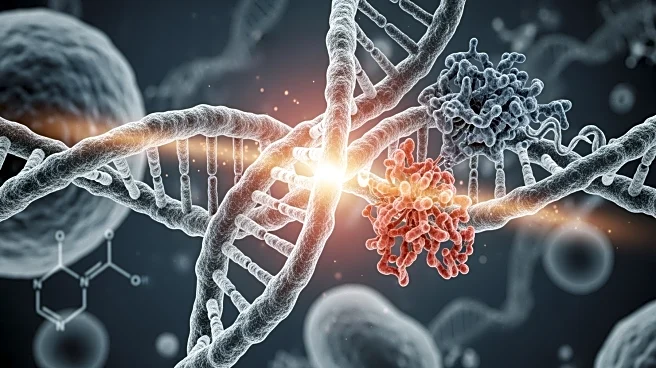What's Happening?
A recent study has uncovered that chemotherapy can enhance the secretion of HMGA1 protein in pancreatic ductal adenocarcinoma (PDAC) cells through the mutant p53-CK2 axis. The research focused on human
PDAC cell lines, including those with TP53 mutations, and found that HMGA1 hypersecretion is correlated with these mutations. The study utilized various cell lines and treatments, including Gemcitabine and Oxaliplatin, to investigate the effects on HMGA1 secretion. The findings suggest that the mutant p53-CK2 axis plays a significant role in regulating HMGA1 secretion, which could impact the progression and treatment of pancreatic cancer.
Why It's Important?
This discovery is significant as it highlights a potential mechanism by which chemotherapy influences protein secretion in cancer cells, potentially affecting tumor growth and metastasis. Understanding the role of the mutant p53-CK2 axis in HMGA1 secretion could lead to new therapeutic targets for pancreatic cancer, a disease known for its poor prognosis and limited treatment options. The study also underscores the importance of personalized medicine, as targeting specific genetic mutations could improve treatment efficacy and patient outcomes.
What's Next?
Further research is needed to explore the therapeutic potential of targeting the mutant p53-CK2 axis in pancreatic cancer. Clinical trials could be designed to test inhibitors of this pathway, potentially leading to new treatment strategies. Additionally, the study opens avenues for investigating the role of HMGA1 in other cancers and its potential as a biomarker for treatment response.
Beyond the Headlines
The study raises questions about the broader implications of chemotherapy-induced protein secretion and its impact on cancer biology. There are also ethical considerations regarding the development of targeted therapies and the accessibility of such treatments to diverse patient populations.











